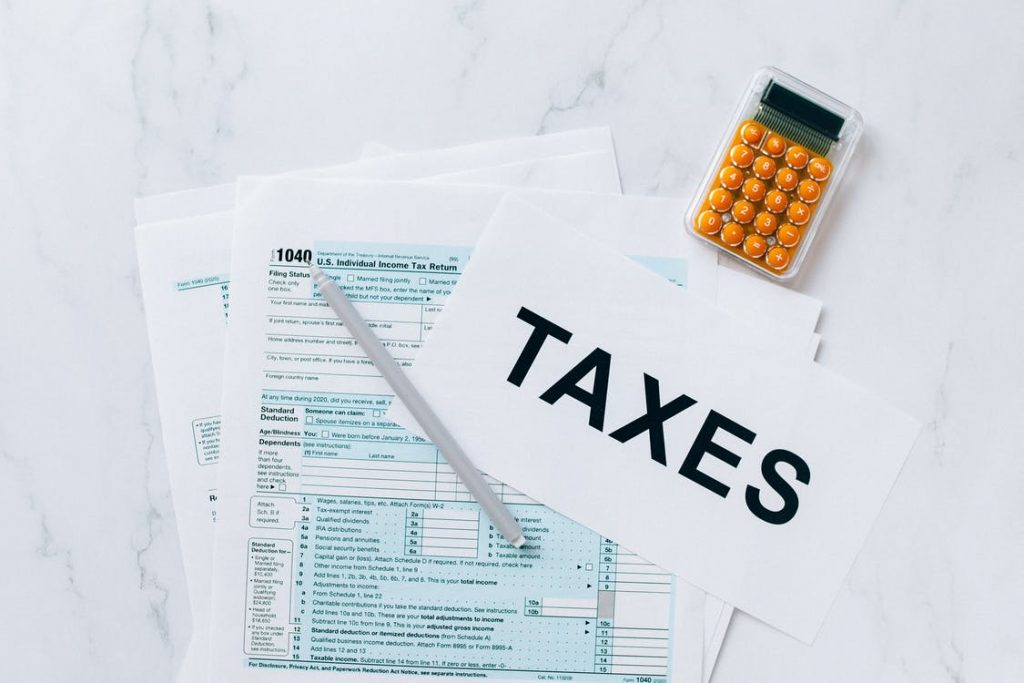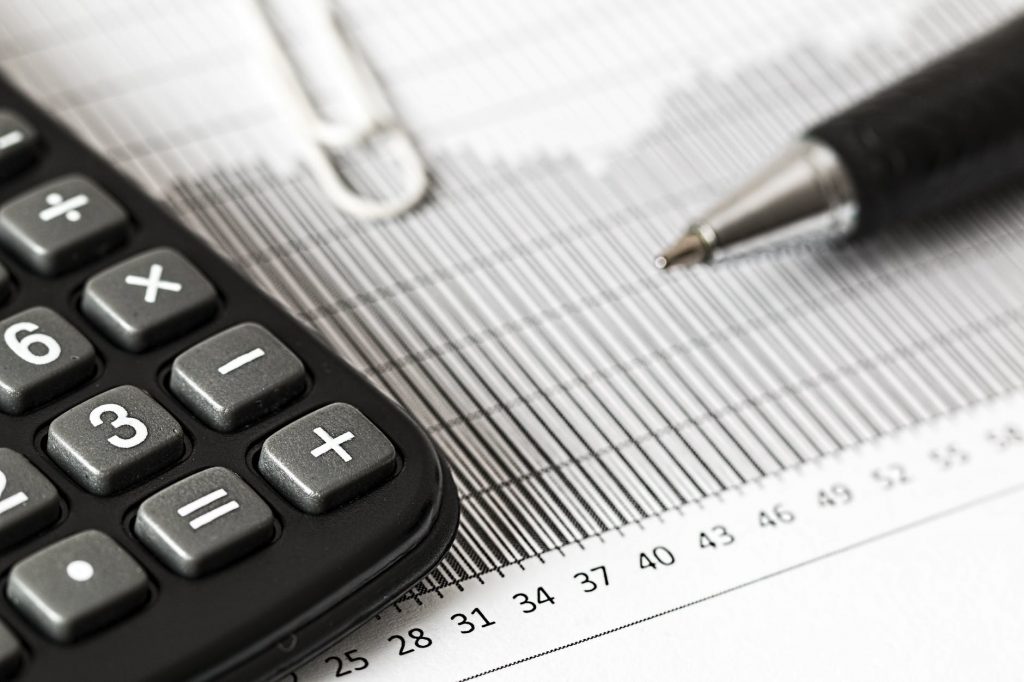Binary Options Taxes


“In this world nothing can be said to be certain, except death and taxes,” so wrote one of the United States’ Founding Fathers, Benjamin Franklin, in 1789. And that certainty remains true today. Binary options taxes are worth exploring before you start trading. Importantly, taxes on binary options vary across different countries and it is important that you learn the rules where you are based. Here, we review rules for paying taxes on binary options trading activities in major jurisdictions, in addition to providing tips to help with your tax return.
Note, this article does not constitute professional tax advice. Consult a local tax professional for guidance.
Binary Options Brokers
What Are Binary Options?
Binary options are a type of derivative where you predict whether the price of an underlying asset will be greater than or less than a specified strike price when the contract expires. Typically, they have fixed returns such that you will receive a predetermined profit if your prediction is correct and the trade ends ‘in the money’. If the contract expires ‘out of the money’ you lose the initial investment.
Here is a straightforward example…
Stock A is currently valued at $5 and you believe it will be worth $6 after half an hour. A broker offers a profit percentage of 75% if your binary option ends ‘in the money’. You enter a ‘high’ position for a strike price of $5.50 with a stake of $100. If in half an hour, Stock A is worth more than $5.50, so you receive $175 ($100 stake + 75% profit).
If Stock A was worth less than $5.50, you would lose your initial stake.
Tax Rules
North America
USA
In the US, binary options taxes are impacted by several different factors. First, if the expiration time is less than 12 months, the revenue is classified as a short-term capital gain. Short-term gains are taxed alongside normal income streams, for which tax brackets range between 10% and 37%.
Any trade that expires after a year is normally a long-term capital gain and is subject to one of three tax brackets: 0%, 15% or 20%.
Furthermore, the tax brackets are different if you file as a head of the household, married and filing together, married and filing separately or if you are single.
If your trading profits exceed $600 in a fiscal year, you need to file a tax return to the IRS. Each trader is permitted to deduct up to $3,000 of losses from the total revenue. For example, if you generate returns of $5,000 but lost $3,000 from trading, you only pay tax on the $2,000 net profit.
Canada
While certain rules vary between provinces, generally, returns from binary options are classified as capital gains. This means that you usually pay a 50% flat tax rate on your net profits from binary options trading.
In Canada, it is only the net profits that are taxed, while your losses offset the total revenue.

Europe
United Kingdom
Are binary options tax-free in the UK? It is difficult to tell. Until 2018, binary options were treated as gambling and so revenue was tax-free. Since then, however, the Financial Conduct Authority (FCA) has overseen the regulation of binary options and tax and introduced a ban for retail traders in 2019.
Because of this, the rules on how UK-based traders should file taxes for their binary options are unclear. Therefore, it is worth consulting a professional tax advisor.
Germany
Binary options profits are taxed at a flat rate of 25% if you generate more than €600 in a fiscal year. If you have made less than €600, you do not normally pay tax. Because of the ban on binary options for retail traders, introduced by The Federal Financial Supervisory Authority (BaFin), you will need to trade with an offshore broker. If you do so, be sure to check the tax rules of the country where your broker is based.
France
Unlike other European countries such as the UK and Italy, brokers are still permitted to sell binary options to retail traders. There is only a ban on advertising. Taxes for binary options normally come under capital gains, which is a flat rate of 30%.
Asia-Oceania
China
Binary options trading is relatively new to China and so there are few clear rules on how to classify resulting profits. Typically, securities are filed as capital gains, for which taxation is 20% and separate from income tax. However, if you are an immigrant and have been a resident for less than five years, profits made from trading securities are classified as normal income tax.
Australia
For those unsure about tax on binary options in Australia, the rules are still unclear. Currently, binary options are prohibited after the Australian Securities and Investments Commission (ASIC) introduced an 18-month ban in May 2021. Until December 2022, when the ban is lifted, it is not known what the rules will be.
Japan
Derivative trading in Japan is treated as miscellaneous income rather than capital gains and so is taxed at a flat rate of 20.315%.
Binary options trading for retail traders is legal, however, it is tightly regulated. Together, the Financial Futures Association of Japan (FFAJ) and the Securities and Exchange Surveillance Commission (SESC) impose strict rules on binary options brokers. Due to these rules, there are few brokers based in Japan as many are licensed by foreign regulators, for example, IQ Option.
If you do use an offshore broker, remember to consider the tax rules for the country where the brokerage is based.
India
Binary options in India come under the category of speculative products, which have blanket taxation of 30% in addition to any surcharges and processing fees.
If you need help filing your tax return, there are many online resources that demonstrate how to pay taxes on binary options in India.
Filing Taxes
Here are a few worthwhile tips to help you with the process of filing your binary options trading taxes…
Keep Track
It could be worth writing down all of your trades in a ledger or a journal. This is helpful when you are filing your taxes as you will already have all the necessary information at hand.
You should include information such as entry value and time, strike price, expiry time and value at expiry. Additionally, you should include your stake, the result of the binary option, returns and whether you made a profit or a loss.

Seek Advice
Filing your taxes can be stressful as any mistakes can prove costly. Therefore, it may be worth paying for a professional tax advisor to complete the process on your behalf. This is particularly beneficial if you are in a country where the tax rules for binary options trading are unclear. While this will cost you a fee, it can save time and effort.
Final Word On Binary Options Taxes
It is important that you are clued up on how to pay taxes on binary options and understand your country’s rules. You should take time to learn the process for paying taxes on your binary options trading so that you are well prepared when it is time to file your tax return.
If you do not understand the binary options tax rules in your country or the country where your broker is based, it is best to consult with a tax advisor.
FAQs
Why Should I Keep Track Of My Binary Options Trading Information?
When it comes to paying your binary options trading taxes, it is key that you provide all of the information that the tax office demands. This means you may need to keep track of the conditions when you opened the contract, so entry price, entry time, type of trade, strike price, initial stake and the underlying asset. Additionally, you may need to include information at expiry, for example, the expiry time, the asset’s value, the result of the trade and any returns. Some platforms, for example Nadex, provide customers with an IRS Form, 1099-B, to detail their trading with binary options and so determining the implications for taxes. Including this information can help when filing your tax return.
Can I Use Offshore Brokers For Binary Options Trading?
It depends on your country’s regulations. Many countries will permit you to use offshore brokers in addition to domestic brokers. Some countries, such as Italy, prohibit residents from using foreign brokers, however, it is not clear how this can be enforced in laws governing binary options taxation.
Are Binary Options Legal In The UK?
Retail traders are not generally permitted to trade binary options in the UK after the FCA introduced a permanent ban in 2019. If you want to trade binary options you must either use an offshore broker or become a professional trader, which demands you pass a number of exams and register with the FCA. Professional trader profits will likely be subject to tax obligations.
Do You Have To Pay Taxes On Binary Options?
In some countries, binary options are seen in the same way as other derivatives and trading instruments. Therefore, there are taxes for the turnover and profit you generate from trading binary options. Although it is less common, certain countries still view binary options akin to gambling, which often is tax-free.
Do I Pay Tax On The Net Profit From Binary Options Trading?
This depends on the country where you are based. In many countries, you only pay tax on the binary options revenue after making a deduction for any losses. For example, in Canada and the US. Be sure to confirm the rules with your tax office before you start trading.



